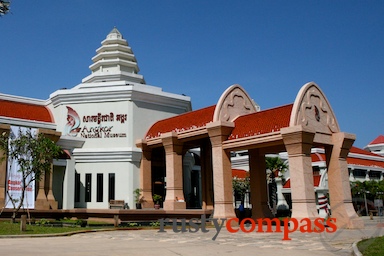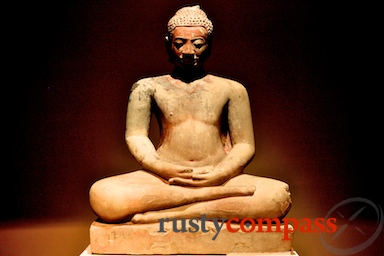The Angkor National Museum has been attracting lots of attention - much of it negative - since its opening in 2007. Recent tensions between Thailand and Cambodia over the temples at Preah Vihear can only further complicate matters for the privately held Thai owned museum.
But as travellers are thus far afforded no meaningful information during a visit to the temples, the Angkor National Museum plays a useful role in telling some of the story of Angkor.

The Museum’s problems probably start with its name. Visitors might reasonably assume a “national museum” to be state operated and sanctioned by the leading scholars in the field. Not so here. Then there’s the shopping mall style building that houses it - a grim portent of what lies ahead as the shopping component of the project continues to unfold.
And the collection itself has been faulted for being visually pleasing without having many pieces of genuine Angkorian significance. A good many of the Buddhas on display in the spectacular Gallery of 1000 Buddhas are said to be from the 20th century.

Yet for all the criticism, the museum does play a very worthwhile educational role. The presentation is excellent and it’s is the only place in Cambodia offering visitors some essential understanding of the history and culture that created the remarkable temples.
Exhibits include illuminating accounts on the Khmer Empire, the major kings, Angkor Wat and Angkor Thom. A gallery devoted to the costumes worn by the stone figures that adorn the temples is especially engaging.
Even if it is on the expensive side, those with a deep interest in Angkor will find the museum a worthwhile stop. Drop by during the heat of the Cambodian day for an air conditioned and informative museum interlude.